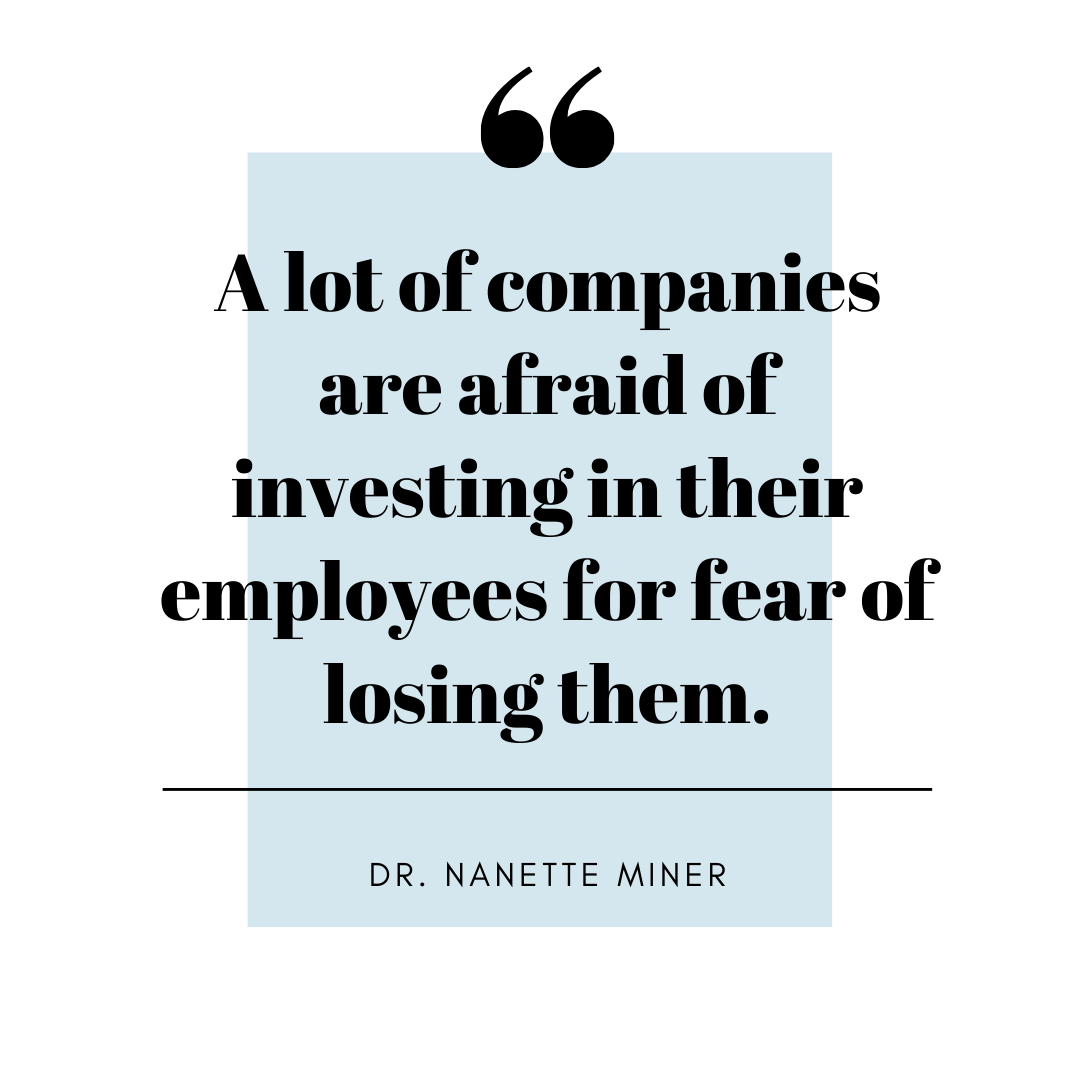The Importance of Breadth and Depth in Your Succession Plan
Succession planning 𝗶𝘀𝗻'𝘁 𝗮𝗯𝗼𝘂𝘁 𝗳𝗶𝗻𝗱𝗶𝗻𝗴 𝗿𝗲𝗽𝗹𝗮𝗰𝗲𝗺𝗲𝗻𝘁𝘀; it's about creating leaders. 𝗜𝘁'𝘀 𝗮𝗯𝗼𝘂𝘁 𝗶𝗻𝘃𝗲𝘀𝘁𝗶𝗻𝗴 𝗶𝗻 𝘁𝗵𝗲 𝗽𝗼𝘁𝗲𝗻𝘁𝗶𝗮l within your organization today, to ensure a strong leadership pipeline for tomorrow.
In all the years I helped companies with their leadership development there was always one burning question: Can you really teach leadership?
The answer is yes – but it’s not easy and it’s not fast.
The same is true of succession planning.
Although I would say it IS easy – if you have the right plan… but it’s still not a fast process.
Part of the reason it is not fast is the need for breadth and depth in succession planning.
Breadth of Organizational Knowledge/Experience
Breadth in a succession plan refers to the variety and diversity of experiences and expertise that individuals in the succession pipeline possess. It involves having a pool of potential successors who have gained a wide range of experiences across different areas within the organization. These individuals should understand the functioning of the organization as a whole rather than simply being experts in their specific roles or departments – which is what “leadership” looks like in most organizations today.
Having individuals with diverse experiences and backgrounds in the succession pipeline is crucial for several reasons:
1. Holistic Understanding of the Organization:
Employees with diverse experiences throughout the organization have a comprehensive understanding of how different departments and functions operate and intertwine. This knowledge is vital for effective decision-making at higher levels when organizational decisions must be made.
2. Adaptability and Flexibility:
Exposure to various roles and functions fosters adaptability and flexibility in future leaders. They are better equipped to respond to changes, challenges, and opportunities, which is especially important in today's dynamic business environment.
3. Cross-Functional Collaboration:
Individuals with experience in multiple areas can bridge invisible barriers and facilitate collaboration between different parts of the organization. Collaboration fosters teamwork and innovation which in turn enhances overall organizational performance.
Depth of Generations
When you have depth in your succession plan, you have multiple layers and generations of potential successors. It is important to cultivate talent at different stages of their careers and identify individuals who can step into critical roles as they progress within the organization.
1. Long-Term Talent Development:
Identifying and nurturing talent early in employees’ careers allows for a long runway of development opportunities, which is crucial for learning behaviors. If you expect a future leader to be knowledgeable in the operations of the whole company – that will require many years of experiences to achieve.
2. Employee Engagement and Retention:
Employees are more likely to stay if they know that your company offers a future for them and a path for career growth.
Incorporating both breadth and depth into your succession plan ensures a comprehensive and robust approach. It's about not only having a diverse pool of potential successors but also nurturing them at different stages of their careers for a seamless leadership transition.
Remember, succession planning is about preparing for a sustainable and thriving future.
This article was originally published on LinkedIn
Leadership Skills for All
What do you define as a “leadership skill?”
Is it being a good communicator?
Or helping other people to increase their skills and capabilities by being a coach?
Is it understanding strategy and your company’s business goals?
Or is it working collaboratively across departments and divisions to achieve the best outcomes?
Here’s another question to ponder: Why do we label ANY of those things “leadership skills?”
It’s much easier to learn leadership skills as a young working professional than it is for someone who has been on the job for 10 or 15 or 20 years. At that point in someone’s career, you’re actually working harder to UNdo behaviors they’ve been practicing for a decade or more. Yet companies typically wait until someone is promoted to leadership and then start developing their “leadership skills.”
Here’s a list of things we typically label leadership skills:
Critical thinking Decision making Risk assessment Continuous improvement Strategy Forecasting Influencing others Behaving Ethically Understanding Finance Project management Workflow planning Ethics
NEW Question!!
What makes those “leadership skills” and not general business skills and how hard is it to teach those skills to everyone?
Here are the answers….
They ARE general business skills, but for some reason we don’t teach them UNTIL someone is promoted to a leadership position. And THAT’s why we label them “leadership skills.”
Are companies afraid to make their employees more capable? Would they rather have someone with limited knowledge and skill - who can only perform a finite task?
There’s a famous quote by Zig Ziglar in which he asks: What’s worse? training your employees and losing them? Or not training them and keeping them?
Perhaps companies are afraid of investing in their employees for fear of the employee going elsewhere…But here’s the kicker – if you DON’T invest in them – they WILL go elsewhere. There have been numerous studies conducted by SHRM and Deloitte and others, that all come to the same conclusion: Millennials and Gen Z workers – those workers under the age of 40 right now – want the same things
- A job that they believe is purposeful and fulfilling, and
- Professional development
Above all else. Above promotions, above pay raises, above titles… So if you AREN’T providing skills development, they WILL leave your company to find it.
It isn’t hard to teach leadership skills to everyone in your organization. There are small, organic things that you can do every day to instill leadership ability.
By teaching leadership skills to all of your employees, you’ll be raising the capability of the whole organization.
More capable people means more productivity; more productivity means more profitability.
So – from this point going forward – let’s all embrace the concept: Leadership skills for all – leadership from day one.


